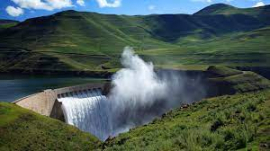
Cabinet this week received an overview of responses by the Department of Water and Sanitation to water and sanitation challenges in the country.
Addressing media in Pretoria on Thursday, Minister in the Presidency Khumbudzo Ntshavheni said the overview highlighted the acceleration of surface water resource projects, such as the construction of the R40 billion Phase 2 of the Lesotho Highlands Water Project which will serve Gauteng and surrounding provinces.
She said work on this project will be completed in 2027.
Regarding the R4 billion Phase 2A of the Mokolo Crocodile Water Augmentation Project in North West and Limpopo, funding is being raised for another phase on which construction will start in May 2024, with completion planned for 2030.
“In a partnership between government and the mining sector, construction is underway on the R24 billion Olifants River Water Resource Development project in Limpopo, with completion expected in 2030.
“In a similar partnership with mines in the Northern Cape, construction will start later this year on the R10 billion Vaal Gamagara project where completion is also expected around 2030,” said the Minister.
She said construction started this month on the R500 million Groot Letaba Water Augmentation Project in Limpopo, which entails the raising of the Tzaneen Dam. Work on this project will be completed in 2025.
In the Western Cape, construction will begin in 2024 on the R1.2 billion Voëlvlei Augmentation Scheme, where completion is expected in 2026.
“These projects are securing the supply of water to the nation and in this process thousands of people will be employed, businesses around the construction sites will benefit from the consumption of workers and contractors, and the improved infrastructure will benefit local economies,” said Ntshavheni.
NWRIA Bill approved
Meanwhile, Cabinet has approved for submission to Parliament the draft National Water Resource Infrastructure Agency (NWRIA) Bill, 2022.
The Bill proposes the setting up of an NWRIA to be responsible for the planning, financing and development of the water infrastructure for the country. It will also be responsible for the maintenance of the current water resource infrastructure.
“The agency is to ensure a sustainable, equitable and reliable supply of water in line with constitutional obligations of access to water and a secure healthy environment.
“It will be set up as a Public Entity under the Schedule 2 of the Public Finance Management Act, 1999 (Act 1 of 1999). The agency will take on the functions that are currently performed by the Trans-Caledon Tunnel Authority,” Ntshavheni said. – SAnews.gov.za


